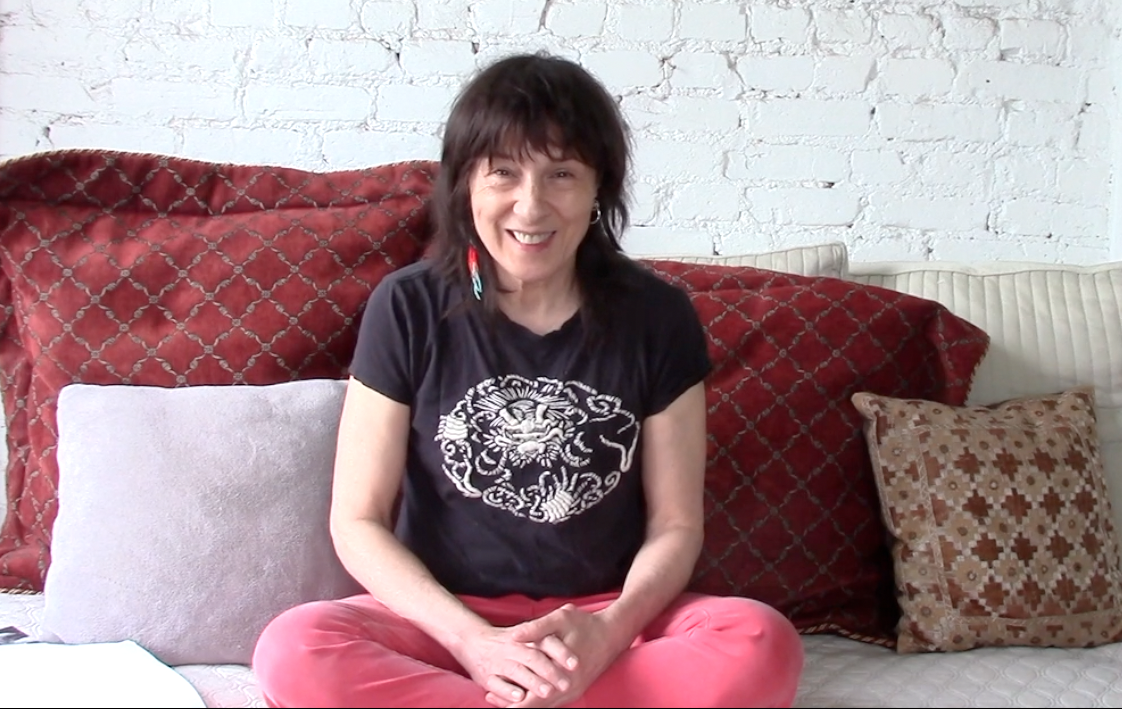…
Maggie and I had been planning to get together for a long time, but one thing or another kept getting in the way. Finally, last Saturday Maggie came over. The morning was pretty quiet, good for a reading; my next door neighbor’s daughter was visiting with her little daughter so there was that happy commotion, and there was the occasional droning plane overhead or the M9 stopping at the light at 9th and C. One day when I’m rich I’ll have a sound proof room with great acoustics to record the poets in, but right now my living room must do. Maggie came prepared; she had printed out what she planned to read and did that easily sitting comfortably on the couch in one take. She was the ambience. I used to scan the poems the poets read from their books to put on the blog, but lately I’ve been typing them out, finding the time it takes is well worth the better read that I get getting closer to the poet’s breath. Typing out Maggie Dubris is a lovely task. I suggest that everyone try it. These particular poems are meditations on time, what appears, disappears and appears again significantly as sight between blinks or breath between the heart’s beats, words waves of sea revealing and taking away again, remembering what we’ve forgotten, our collective mind collected and dispersed as the sea goes out and comes in.
…
…
…
from Toilers of the Sea
I. The Harbor Clock
I have this feeling
That I will live forever, where the light
Has caught me, here, again and again
In the smell of the sandalwood, in the smell
Of the blood, the smells of tar and dust and
Grass and crocuses. In the strong smell of sweat
Before death. There are so many degrees
Of blindness; some eyes can perceive light but
Not motion, some motion but not shape. There
Are people, men mostly, who see nothing
But degrees of brightness. Color, to them,
Is as unfathomable as the bottom of the sea.
A voice came from the shadows. What
Did I see? A man in a photograph
Drenched in light, a fifties guitar, a gray louse
Crawling across a gray arm. What once was
What once is. If I were as long as the light.
II. The Harbor Bell Again
I have this feeling that I will die tomorrow
Here, where the light has caught me, again
And again, I am walking on a gray beach
With starfish and sharp shells poking my feet.
Old folks from the Salvation Army Home sit on
The benches watching the ocean roll into fog.
The smell of violets and candles, of dead fish and
Salt from the old salt sea. Out there, somewhere
Is the old world. Past the white sun, past the curve
Of the ocean. It would take me a thousand days
To swim to that far shore, if my arms were as
Long as the light, as strong as the light. If my eyes
Could peer into the deep beneath me, and see the
Hulls and pieces of eight, the bones of Hart Crane
Lightning glass and shark’s teeth and the beak
Of a Spectacled Cormorant, tossing in the tide.
Listen. I hear slave-chains, and a sailor whistling.
And the scream of a Great Auk, burning as she dives.
III. Despair Confronts Despair
The natives of Easter Island stagger towards me
Weak with generations of poverty and famine
Deaf with the pounding of the ocean, blind
With the uncut light of the sun. The stone heads
Are enormous and terrible and beautiful and stupid
Gazing into the center of this nothing land.
Nine hundred heads, carved of yellow-brown
Volcanic rock. Five hundred years spent quarrying
The old volcano, cutting down the lowland forest,
Rolling their heads to their spots by the sea.
Now the island is treeless and barren
and the heads outnumber the islanders.
Slave ships. Starvation. Smallpox. The beach
Eroding, the cruise ships sailing in.
IV. “For Your Wife” When You Marry
“Here, honey. It’s a ‘goblet.'”
When a 19th century archaeologist discovered
A four thousand year old skull with a smooth
Circular piece sawed out, he wrote that it had
Been polished in order not to snag on savage lips.
But he was wrong. The edges were smooth
Because the bone had healed. And early
Bronze-age surgeon, repairing the damage
Of battle in a cave lit by fire.
Knowledge piles up, and is lost
And piles up again. Bright ages.
Dark ages. Ancient Egyptians
Routinely performed what we now know of as
Cataract surgery, and used moldy bread as a poultice
For infected wounds.
The tide churns up shells, starfish. Dead sea urchins.
But in the deep are creatures fantastical
And strange. Pulsing with light, able to withstand
The pressure of twenty thousand leagues. The waves
Break against my legs, this cold March afternoon.
I wish I was smoking, or maybe living
In another land. With the light all hard and aching.
And my life to begin again.
…

…
Weep Not, My Wanton is published by Black Sparrow Press. Check them out:

I adore the philosophical and atavistic discourse in these poems, Maggie, truly. Beautiful work.